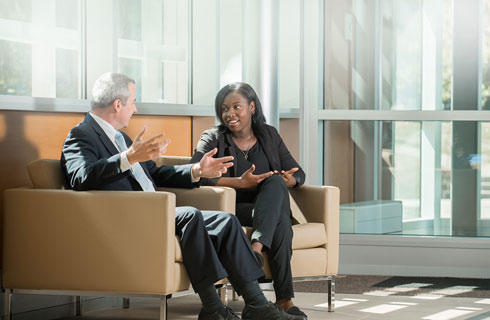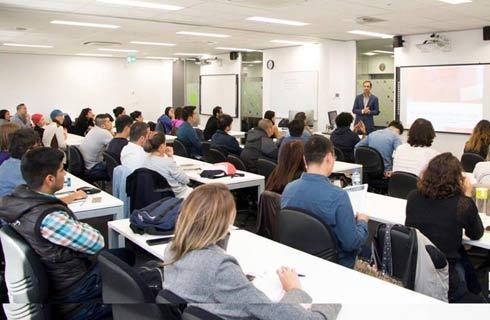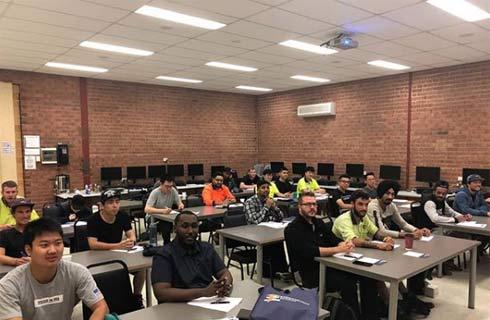国际学生入学条件
Official academic records, from all schools attended (in original language and an official word for word English translation)
High school courses completed
Grade point average
SAT/ACT scores and subscores (if submitted)
TOEFL internet-based (iBT) - 79
TOEFL Paper-based - 550
IELTS overall band score - 6.5
展开
IDP—雅思考试联合主办方

雅思考试总分
6.5
- 雅思总分:6.5
- 托福网考总分:79
- 托福笔试总分:550
- 其他语言考试:Duolingo - 105
CRICOS代码:
申请截止日期: 请与IDP联系 以获取详细信息。
课程简介
The undergraduate program in Communication Sciences and Disorders is a pre-professional program. A master's degree is the entry-level degree for the field of speech-language pathology. A clinical doctorate is the entry-level degree for the field of audiology. These advanced degrees are required for the American Speech-Language-Hearing Association's Certificate of Clinical Competence and Illinois Licensure. All students receiving a Bachelor of Science degree in Communication Sciences and Disorders will have the option to pursue either advanced degree, since all proposed required coursework in the undergraduate Communication Sciences and Disorders major meets the prerequisite coursework for either graduate degree (M.S. in speech-language pathology or Au.D.). Speech-language pathologists are involved in the prevention, evaluation, and treatment of persons with communication disorders. Speech-language pathologists assess and treat patients who have speech, language, voice, fluency, or oral motor disorders. They also assist people who wish to improve their communication skills through changes in vocal pitch, quality, or accent. Speech-language pathologists utilize special instruments and tests to develop individualized treatment plans for patients. Also, they counsel and refer clients to other professionals, teach, conduct research, and administer programs in speech-language pathology. The profession provides the opportunity to work in a variety of work settings including schools, community centers, health maintenance organizations, hospitals, clinics, hospices, nursing homes, and rehabilitation centers.<br><br><br><br>Speech-language pathologists are involved in the prevention, evaluation, and treatment of persons with communication disorders. Speech-language pathologists assess and treat patients who have speech, language, voice, fluency, or oral motor disorders. They also assist people who wish to improve their communication skills through changes in vocal pitch, quality, or accent. Speech-language pathologists utilize special instruments and tests to develop individualized treatment plans for patients. Also, they counsel and refer clients to other professionals, teach, conduct research, and administer programs in speech-language pathology. The profession provides the opportunity to work in a variety of work settings including schools, community centers, health maintenance organizations, hospitals, clinics, hospices, nursing homes, and rehabilitation centers. Audiologists are involved with people who have hearing, balance, and related ear problems. They examine individuals of all ages and identify those with the symptoms of hearing loss and other auditory, balance, and related sensory and neural problems. They then assess the nature and extent of the problems and help the individuals manage them. Using audiometers, computers, and other testing devices, they measure the loudness at which a person begins to hear sounds, the ability to distinguish between sounds, and the impact of hearing loss on an individual's daily life. In addition, audiologists use computer equipment to evaluate and diagnose balance disorders. Audiologists interpret these results and may coordinate them with medical, educational, and psychological information to make a diagnosis and determine a course of treatment.
展开







 预科
预科 奖学金
奖学金 实习机会
实习机会 在校学习
在校学习 跨境学习
跨境学习 校园授课-线上开始
校园授课-线上开始 在线/远程学习
在线/远程学习












 麦吉尔大学继续教育学院
麦吉尔大学继续教育学院

 韦仕敦大学
韦仕敦大学

 圣劳伦斯学院
圣劳伦斯学院

 麦吉尔大学继续教育学院
麦吉尔大学继续教育学院

 麦吉尔大学继续教育学院
麦吉尔大学继续教育学院

 麦吉尔大学继续教育学院
麦吉尔大学继续教育学院









 美国
美国
